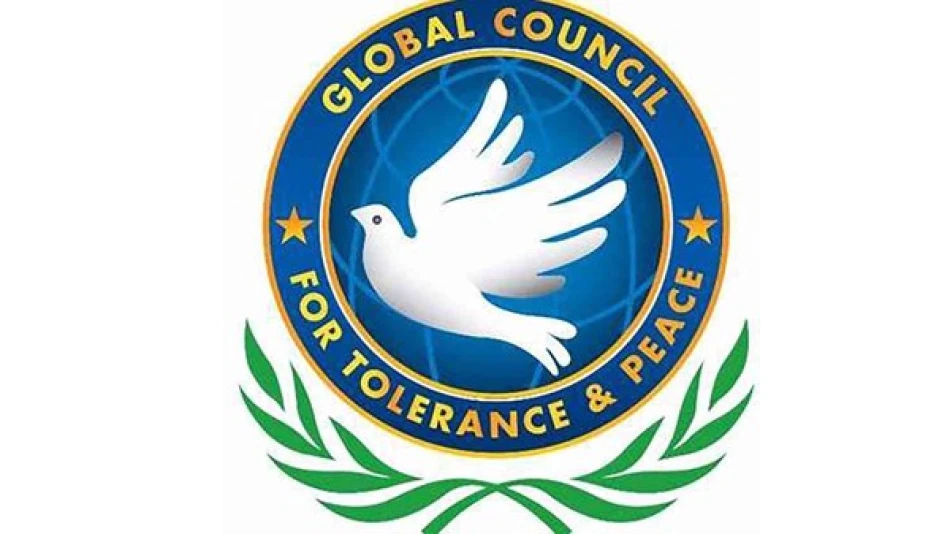
Global Centre for Tolerance Advocates Strengthening Peace Between Peoples
Global Peace Council Uses International Day of Peace to Condemn Gaza Violence
The Global Council for Tolerance and Peace has called for strengthening peace values worldwide, directly criticizing Israel's actions in Gaza as undermining regional stability. The Abu Dhabi-based organization used the International Day of Peace on September 21 to push for concrete action rather than symbolic gestures, highlighting how current conflicts threaten global security efforts.
Beyond Symbolism: A Call for Action
Ahmed bin Mohammed Al-Jarwan, President of the Global Council for Tolerance and Peace, emphasized that the International Day of Peace shouldn't just be a ceremonial occasion. Instead, he positioned it as a practical milestone for embedding peace and tolerance values among nations.
The council's statement reflects a growing frustration among regional organizations with what they see as ineffective international responses to ongoing conflicts. This approach mirrors similar statements from other Middle Eastern diplomatic bodies that have moved beyond general peace rhetoric to specific criticism of military actions.
Gaza Conflict Takes Center Stage
Al-Jarwan directly addressed the situation in Gaza, describing it as involving "killing and violation of civilian rights." He argued that current Israeli government actions create "a reality of violence and destruction" that undermines international efforts to establish comprehensive and just peace.
This direct criticism is significant coming from a UAE-based organization, especially given the Abraham Accords signed between Israel and the UAE in 2020. The statement suggests that even countries with normalized relations are willing to publicly criticize Israeli military operations when they view them as excessive.
Regional Implications
The council's statement points to what it sees as the destruction of peace opportunities through abandoning peaceful principles and choosing options that "disturb the region's future." This language reflects broader concerns across the Middle East about how the Gaza conflict affects regional stability efforts.
International Community Response
The organization called on governments, international organizations, and civil society groups to strengthen their commitment to promoting coexistence, justice, and human rights protection. They specifically advocated for addressing conflicts through dialogue and mediation rather than military action.
This approach aligns with diplomatic trends seen in other regional conflicts, where organizations increasingly push for structured dialogue processes. Similar calls have emerged from ASEAN regarding Myanmar and from African Union bodies addressing various continental disputes.
What This Means for Regional Diplomacy
The statement represents a calculated diplomatic move. By timing their criticism with the International Day of Peace, the council gains international attention while maintaining their broader mission of promoting tolerance. This strategy allows them to criticize specific actions without abandoning their overall peace-building mandate.
For regional diplomatic relations, this kind of targeted criticism from UAE-based organizations suggests that normalization agreements don't prevent public disagreement with military policies. It shows how regional peace organizations are trying to maintain credibility while navigating complex political relationships.
The council's emphasis on concrete action over symbolic gestures also reflects growing impatience with international diplomatic processes that produce statements but limited results. This mirrors similar frustrations expressed by peace organizations globally when dealing with protracted conflicts.
Most Viewed News

 Layla Al Mansoori
Layla Al Mansoori






